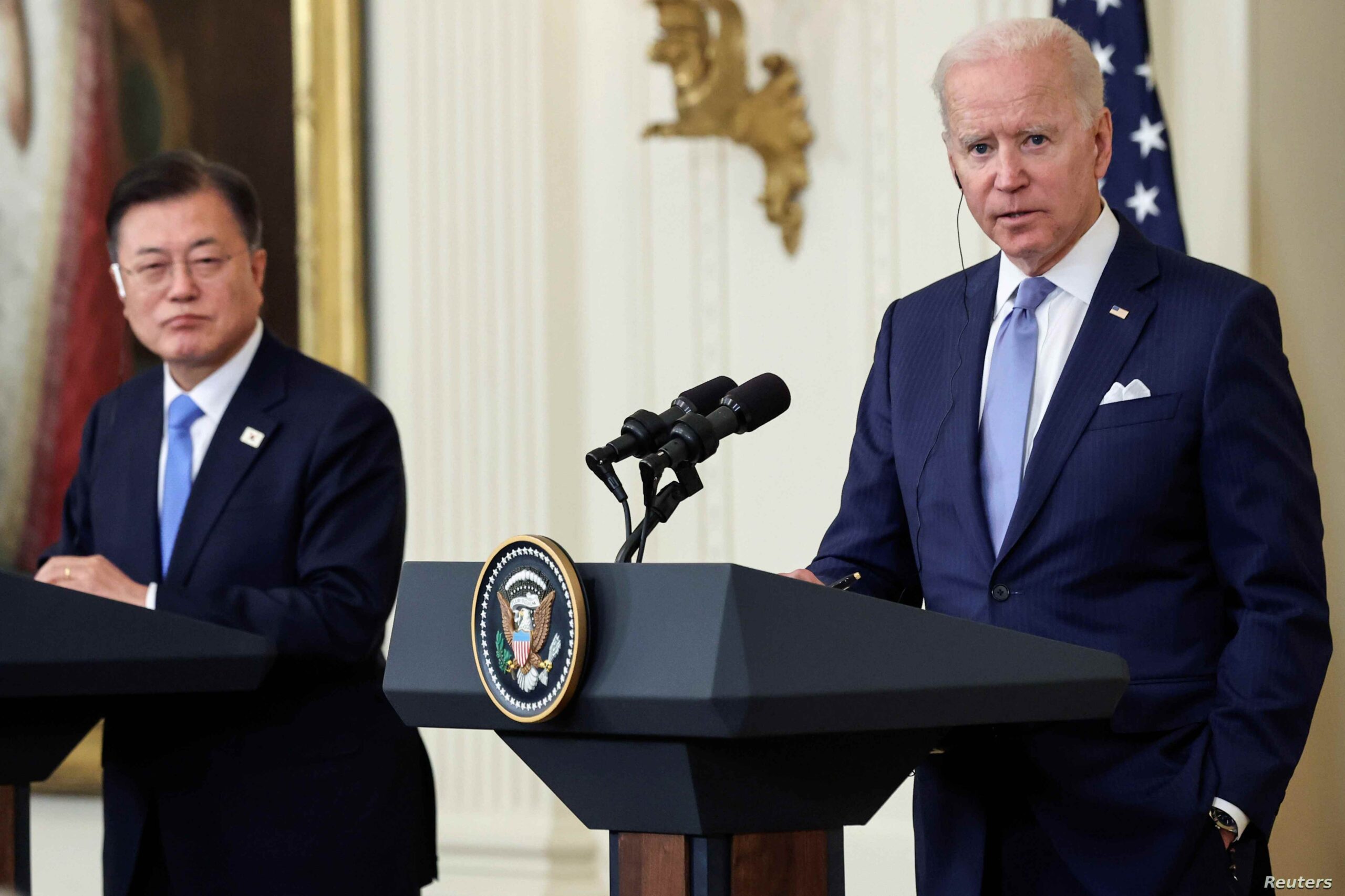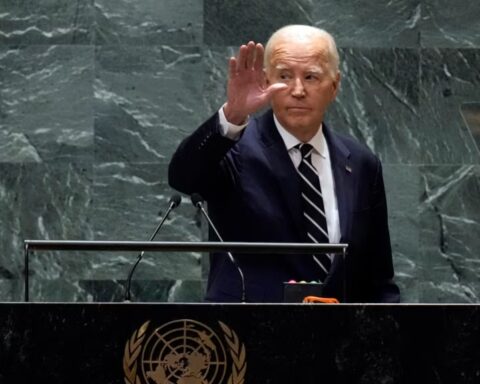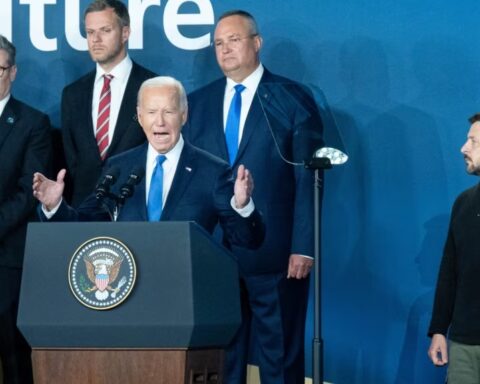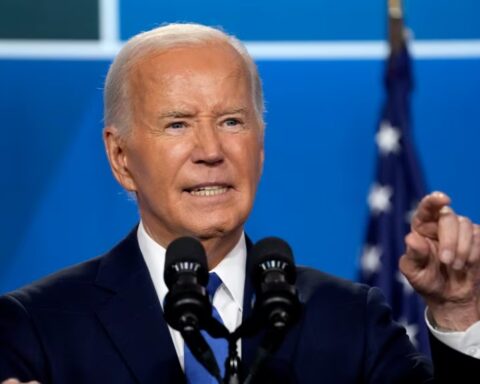“We will strengthen our ability to fight the pandemic and respond to future biological threats,” Biden said during a joint press conference with Moon.
South Korea has vaccinated only 3% of its 52 million residents, but aims to reach herd immunity by November. Under the agreement, the U.S. will help Seoul reach that goal, including by providing vaccines for 550,000 members of the Korean military who work alongside U.S. forces in the region.
The leaders also focused on climate change and regional security, including partnerships with other allies in the region. They discussed the democratic crisis in Myanmar, tensions in the Taiwan Strait and cooperation regarding high-tech industries.
Biden thanked South Korean companies, including Samsung, Hyundai, SK and LG, which announced more than $25 billion in new investments in the U.S. Those investments are intended to support the Biden administration’s goal of building supply chain resilience in its rivalry with China.
Last month, the two countries reached a Special Measures Agreement (SMA) on Seoul’s contribution to the cost of stationing U.S. forces in South Korea. Negotiations for the SMA deadlocked last year when then-President Donald Trump demanded a fivefold increase in South Korean contributions.
“The atmospherics is very good between the two countries, so they really want to showcase the strength of the alliance relationship,” said Sue Mi Terry, a senior fellow for Korea at the Center for Strategic and International Studies.
Moon is only the second world leader Biden has hosted since taking office in January, after Japanese Prime Minister Yoshihide Suga’s visit in April. The visits demonstrate the importance Washington attaches to Asia as it seeks to counter China’s influence and reflect Seoul’s increasing confidence in its U.S. engagement.
“South Korea has been very ambivalent about how to respond to the Sino-U.S. rivalry,” said Scott Snyder, director of the U.S.-Korea policy program at the Council on Foreign Relations. Snyder said that by framing regional cooperation in the context of providing public goods (including vaccines), supply chain resiliency and climate change cooperation, the Biden administration has shifted regional engagement away from the anti-China focus under the Trump administration.
“That’s a more fruitful basis upon which the South Korean government can engage in cooperation with the United States and other partners without necessarily casting that cooperation in opposition to China,” Snyder said.
North Korea
Both leaders reiterated their commitment to halt the North Korean nuclear program.
“We both are deeply concerned about the situation,” Biden said
The U.S. president announced that he has appointed Sung Kim, a career diplomat with expertise on North Korea policy, to serve as a special envoy to North Korea as the administration seeks to establish diplomatic relations with the hermit nation.
“Our two nations also share a willingness to engage diplomatically with the DPRK to take pragmatic steps that will reduce tensions as we move toward our ultimate goal of denuclearization of the Korean Peninsula,” Biden said.
Moon stressed that the two countries are aligned on the timeline for denuclearization.
“The principle of the negotiation toward North Korea has already been announced by the U.S. government: very calibrated, practical, gradual, step-by-step manner and very flexible,” Moon said. “That is the common understanding that we have with the United States.”
Moon is eager to cement a legacy as peacemaker before he leaves office next year. But analysts say the prospects of halting Kim Jong Un’s nuclear ambitions are dim.
“There’s no momentum when it comes to North Korea. There’s no breakthrough that can be expected,” said Terry of CSIS.
Pyongyang’s nuclear weapons and fuel stockpile have advanced in the past four years, despite personal diplomacy between Trump and the North Korean leader.
“We’re in an impasse with North Korea, and most likely North Korea would revert to a campaign of provocation sometime soon,” Terry said.
Just a few weeks earlier, the Biden administration finalized its monthslong review of North Korea policy, one that signals a departure from previous administrations by pursuing a “calibrated, practical approach,” said White House press secretary Jen Psaki. She framed the approach as a middle way between Trump’s strategy of aiming for a grand bargain and the Obama-era “strategic patience.”
Analysts say the administration’s North Korea policy is scant on details.
“The administration wants to leave itself as much space as possible,” said Snyder of the Council on Foreign Relations. “Both to keep the door open for possible dialogue with North Korea, but also not to be embarrassed in the event that North Korea reverts to provocations.”
Also Friday, the two leaders awarded the Medal of Honor to retired Colonel Ralph Puckett Jr. from the U.S. Army for conspicuous gallantry during the Korean War, the first time that a foreign leader has participated in the award event.






